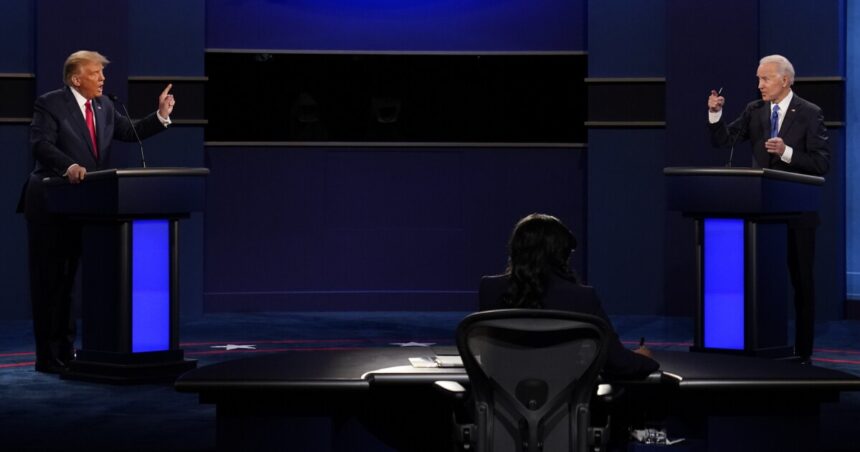The upcoming presidential election will significantly impact how the U.S. addresses global conflicts, ranging from China to Eastern Europe and the Middle East.
President Joe Biden and former President Donald Trump have highlighted their differences and touted their own records on the campaign trail.
“Madeleine Albright was right. We are the essential nation. If we don’t stand up, who does? If we don’t unite the world, who can in our interest?” Biden stated during a campaign reception in May.
President Biden has focused on democratic values and U.S. global leadership, strengthening alliances in Europe and the Indo-Pacific while addressing ongoing conflicts in Ukraine and Gaza.
On the other hand, Trump blamed Biden for conflicts like the Russia-Ukraine war and believes they wouldn’t have occurred under his presidency. Trump’s administration challenged international organizations and agreements, including NATO and the United Nations.
Spencer Bakich, a senior fellow at the University of Virginia’s Miller Center, highlighted the contrasting views of Biden and Trump on America’s relationships.
Path to the White House
Which foreign leaders do Biden and Trump get along with?
11:55 AM, Jun 03, 2024
President Biden has supported NATO’s expansion and provided aid to Ukraine in response to Russia’s invasion. Trump, on the other hand, questioned support for NATO and urged European countries to spend more.
In the Middle East, Biden’s initial support for Israel in its conflict with Hamas has evolved into criticism over civilian casualties in Gaza. Biden continues to advocate for a two-state solution and peace in the region.
Path to the White House
Scripps News Reports: US foreign policy and the path to the White House
7:30 PM, Jun 06, 2024
In managing conflicts, both Biden and Trump have navigated challenges in the Middle East, particularly in Gaza. Biden’s approach reflects sensitivity towards the Palestinian cause and civilian lives, while Trump’s stance has differed.
Both candidates have also faced tensions with China, engaging in diplomatic efforts and trade strategies to influence relations in the region.
Regardless of the election outcome, the next president will confront complex decisions as global dynamics continue to evolve.





